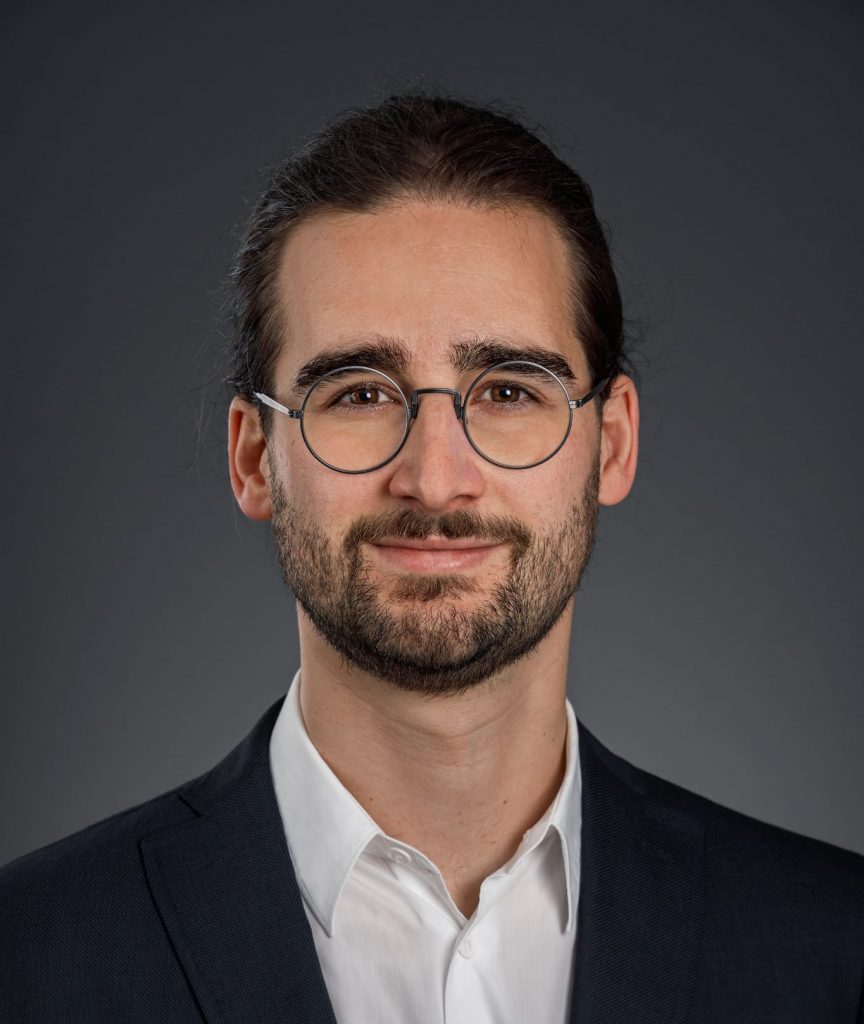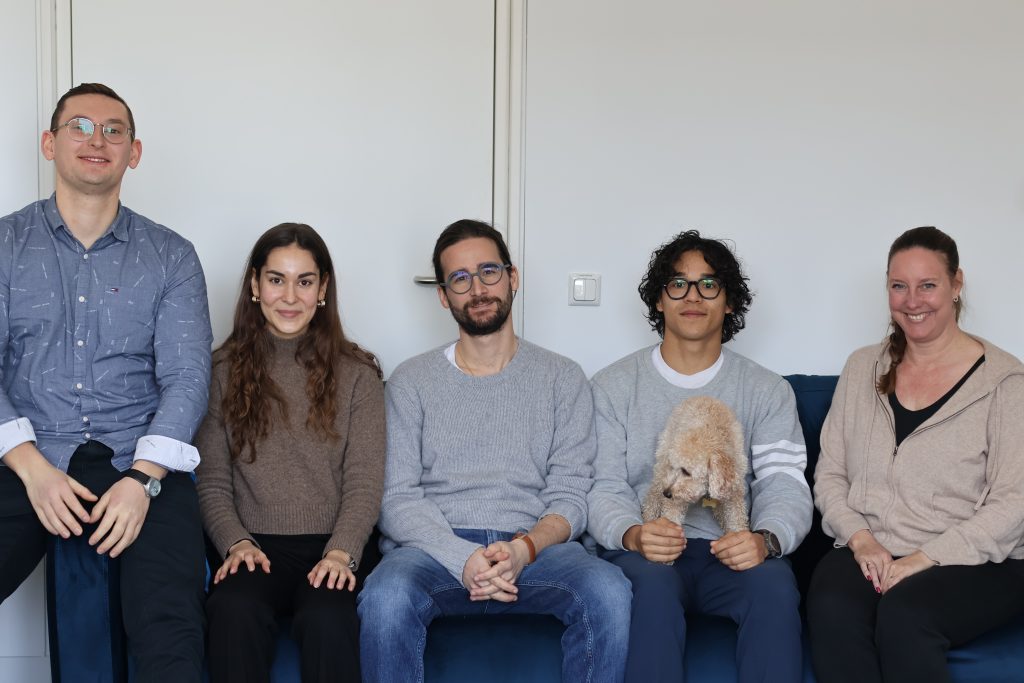Higher energy densities, greater safety, and a longer operating life – that’s what solid-state batteries promise. They are considered one of the most promising approaches to taking electric mobility and advanced energy storage solutions to a whole new level in the near future. But there is still a long and challenging way to go before they can be widely used on a large scale. In this interview, Dr. Andreas Weis, co-founder and CTO of the Munich-based start-up Qkera, explains why their development of oxide-ceramic solid electrolytes could be a decisive factor in bringing the technology to market not only faster but also far more reliably and efficiently.

Dr. Andreas Weis, co-founder and CTO of the Munich-based start-up Qkera. (Photo: Paul Günther)
What sparked the idea of founding the start-up Qkera together with Prof. Jennifer L.M. Rupp?
You could say Qkera exists because of e-conversion. The key moment was a talk Jennifer gave in Munich shortly after she had been appointed to the Technical University of Munich. I was working on my PhD at LMU Munich in the group of Prof. Thomas Bein. My research focused on the nanostructuring of thin films and how they can be deposited cost-effectively from solutions. Jennifer uses a spray-based process for film formation. I learned a lot about this method during a several-month stay in her research group. Working as a team, we realized how complementary our research approaches were and joined forces to deposit nanostructured ceramic films via roll-to-roll processing. My doctoral advisor, Thomas Bein, encouraged us to found the start-up because he saw great potential in our idea. The networking opportunities offered by the excellence cluster were in many ways very beneficial!
Qkera has been officially active since the beginning of 2024. What are the company’s main focus areas?
Our overarching goal is to help solid-state batteries make a breakthrough. The crucial difference compared to the currently dominant lithium-ion batteries is that they use a solid electrolyte instead of a liquid one. This is exactly where Qkera comes in: we are developing solid electrolytes based on oxide ceramics. When used in batteries, they could increase energy density by 30 to 50 percent compared to conventional lithium-ion batteries. In addition, we aim to develop a scalable manufacturing process that is compatible with existing roll-to-roll processes, making it also very cost-effective.
What are the advantages of using oxide ceramics as solid electrolytes in batteries?
One major advantage is their robustness, even in chemical terms. Very few substances can degrade them. Unlike sulfides, which are another class of materials considered for solid electrolytes, oxide ceramics can be processed without cleanroom conditions. They are also extremely hard, which helps prevent the formation of dendrites – a problem that also occurs in lithium-ion batteries. This is a key benefit for new concepts that use pure lithium anodes. A drawback is that ceramic materials tend to be brittle. We try to compensate for this with very thin layers and a finely tuned microstructure, which we can achieve through our process.
How does Qkera’s technology differ from previous methods?
Until now, oxide ceramics have typically been produced through sintering, requiring high temperatures and pressures. These are the main cost drivers in solid electrolyte production. Our process significantly reduces the use of energy by operating at much lower temperatures. We can also produce very thin and homogeneous oxide layers – just two to ten micrometers thick, which means we use less material. To achieve this, we use various dissolved metal salts as precursors and deposit them onto a substrate using a special heating and drying process. The substrate can be a porous glass fiber, ceramic mesh, or polymer carrier to obtain a flexible membrane. We can ensure very uniform crystal growth by precisely controlling the drying and densification process. This is the technological core of Qkera and the result of our development work over the past year. We have very quickly achieved convincing results – one technical milestone followed another.
That sounds promising! Are you already in talks with industry partners?
Yes, we are currently engaged in discussions with a major German battery manufacturer and an automotive company to define a development partnership. These companies became aware of us because our innovative approaches have already won several awards. For example, we were recognized as one of the 25 best science start-ups worldwide at the Falling Walls Science Summit. It is incredibly exciting and motivating to see that we are on the right track – and that there is real interest in our technology.
Launching a start-up is never easy. What has been the key to Qkera’s success?
We were fortunate to have a strong team early on – and business angels from our field with deep expertise who believed and invested in us. Then there is the unique infrastructure for entrepreneurs at TU Munich: we went through all the stages at UnternehmerTUM, which was extremely valuable. The XPRENEURS incubator was particularly helpful, as was the network we built with other start-ups. That gave us access to a wealth of knowledge, from how to pitch to investors to understanding public funding options and patent law. The TUM Venture Labs also gave us a significant boost by providing lab space, which is why we plan to continue investing in facilities there.
Looking ahead: where do you see Qkera in five years?
That’s an exciting question. I firmly believe in the potential of solid-state batteries – they could be a real game changer. It would be a dream to build a competitive battery in Europe that can stand up to concepts from Asia. But I’m also realistic: we are developing this technology straight from research, and it’s a hugely complex challenge. There is still a long road ahead. However, we have already reached some significant milestones in the lab and with potential customers. What gives me real optimism is our progress in scaling. We started with films just one square centimeter in size, and in under a year we have increased that area more than twenty-fold! That means we have solved one of the biggest industrial application problems of this material class.

Rethinking solid-state batteries: The Qkera team produces oxide-ceramic solid electrolytes that can be processed with industrial methods (from left: Steffen Weinmann, Lea Schulz, Dr. Andreas Weis, Marcel Arnold, Prof. Jennifer L.M. Rupp). Photo: Lisa Winkler
Qkera: next-generation batteries
The Munich-based start-up Qkera – founded in 2024 by Prof. Jennifer L.M. Rupp and Dr. Andreas Weis – develops innovative solid electrolytes based on lithium-ion-conducting oxide ceramics. These materials are nonflammable and free of rare-earth elements, and can enable energy densities up to 50 percent higher than those of conventional lithium-ion batteries. A central focus is scalability: the manufacturing process is energy-efficient and compatible with industrial roll-to-roll techniques. This makes the technology suitable for applications in electric mobility, portable electronics, and stationary energy storage. Qkera has already received international recognition for this approach, including being selected as one of the world’s top science start-ups at the Falling Walls Science Summit 2023.
Learn more at: www.qkera.com
